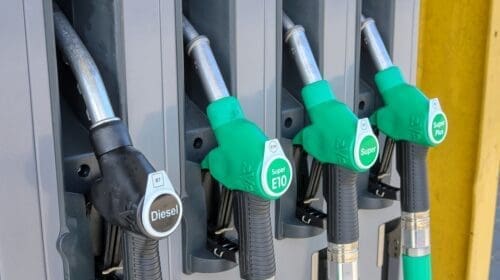With Dallas-based Sunoco primarily working within the motor fuel distribution sector, the company has been eyeing opportunities that would allow it to diversify into other business areas. As a result, Sunoco announced a new deal on Monday where it would spend $7.3 billion to acquire NuStar Energy, a fuel storage and pipeline operating company. While the agreement includes debt, it contains $2.99 billion in equity.
According to the agreement specifics, NuStar shareholders could realize 0.400 per Sunoco share for each unit of NuStar. This would estimate Sunoco’s share value at $23.78, representing a premium exceeding 30 percent of NuStar’s value.
“Having the fuel distribution business helps keep your midstream assets full, and often these assets provide a foundation for additional growth and supply synergies,” said a Sunoco executive.
The NuStar acquisition would boost Sunoco’s asset sheet with transportation and storage facilities. Still, additional value comes with approximately 9,500 miles of pipelines and sixty-three terminals focusing on crude and refined products. This acquisition would give Sunoco a foothold in North American Shale’s West Coast and Midwest.
Sunoco and NuStar expect to finalize the acquisition by the year’s second quarter and foresee cost savings of $150 million by 2027. The pipeline and storage assets gained from NuStar are expected to impact Sunoco’s balance sheet significantly.
“(Sunoco’s) transaction does represent a transformative shift in strategy, in our view, to a more diversified and vertically integrated midstream company,” said a J.P. Morgan analyst. “We would not be surprised to see Energy Transfer remain quiet on M&A until this deal reaches completion.”
Sunoco reigns as the largest independent fuel supplier in the United States, with an origin dating back to 1886. Once a player in oil, natural gas exploration, production, chemical manufacturing, and refining, the company divested those assets. Now, it seeks to potentially re-enter some, if not all, of those markets, with the NuStar acquisition serving as another stop in a path of progress started a few years earlier.
Energy Transfer Partners purchased Sunoco in 2012 and moved its headquarters to Dallas, Texas. In 2014, the company began analyzing the potential in the midstream market and purchased Aloha Petroleum of Hawaii, including six state terminals. Later, Sunoco emerged into the processed fuel footprint by purchasing Emerge Energy Services LP in 2017.
Sunoco continued its aggressive strategy the following year by acquiring Superior Plus Energy Services and its three terminals. In 2019, the company gained 50 percent ownership in a joint venture with Energy Transfer to purchase the J.C. Nolan diesel fuel pipeline connecting West Texas and the Gulf Coast. Later in the year, the Attis Industries acquisition increased Sunoco’s market share with its ethanol plant.
Within the past three years, Sunoco increased its midstream market share by constructing a terminal in Brownsville, Texas. In addition to purchasing a terminal in Puerto Rico, the company acquired sixteen more terminals spanning the East Coast and Midwest. With the Chess-like moves made over the past seven years, Sunoco has maneuvered itself to become a diversified contender in the oil and gas industry. The recent NuStar announcement only solidifies the plan Sunococ is currently conducting.
Nick Vaccaro is a freelance writer and photographer. In addition to providing technical writing services, he is an HSE consultant in the oil and gas industry with twelve years of experience. Vaccaro also contributes to SHALE Oil and Gas Business Magazine, American Oil and Gas Investor, Oil and Gas Investor, Energies Magazine and Louisiana Sportsman Magazine. He has a BA in photojournalism from Loyola University and resides in the New Orleans area. Vaccaro can be reached at 985-966-0957 or nav@vaccarogroupllc.com.
Oil and gas operations are commonly found in remote locations far from company headquarters. Now, it's possible to monitor pump operations, collate and analyze seismic data, and track employees around the world from almost anywhere. Whether employees are in the office or in the field, the internet and related applications enable a greater multidirectional flow of information – and control – than ever before.











